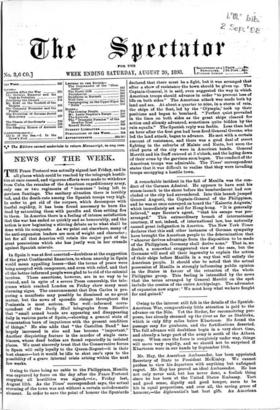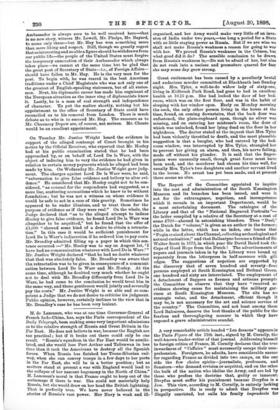Mr. Hay, the American Ambassador, has been appointed Secretary of
State to President McKinley. We cannot profess to view his departure with anything but unfeigned regret. Mr. Hay has proved an ideal Ambassador. He haa not only never said, but has never done, a foolish thing since he has been at the United States Embassy. Tact and good sense, dignity and good temper, seem to be his in equal proportions, and over all, the saving grace of humour,—the diplomatist's last best gift. An American Ambassador is always sure to be well received here—that is no new story, witness Mr. Lowell, Mr. Phelps, Mr. Bayard, to name only three—but Mr. Hay has won something more than mere liking and respect. Still, though we greatly regret that so interesting and so able a figure should be withdrawn from our public life—the people of the United States must forgive the temporary annexation of their Ambassador which always takes place—we cannot at the same time but be glad that the great post of Secretary of State—i.e., of Foreign Affairs— should have fallen to Mr. Hay. He is the very man for the post. To begin with, he was reared in the best American traditions under a Chief Magistrate who was not only one of the greatest of English-speaking statesmen, but of all states- men. Next, his diplomatic career has made him cognisant of the European situation as the inner ring of diplomatists know it. Lastly, he is a man of real strength and independence of character. To put the matter shortly, nothing but his appointment to the office of Secretary of State could have reconciled us to his removal from London. There is much debate as to who is to succeed Mr. Hay. The rumours as to Mr. Chauncey Depew are, of course, not serious. Mr. Choate would be an excellent appointment.



































